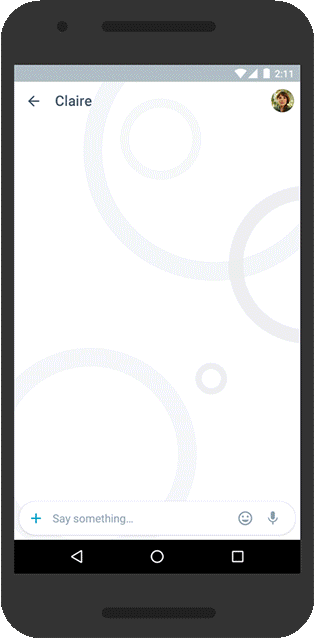Assistant, Google’s conversational helper, debuted last year exclusively on Pixel smartphones before quickly making its way into Google’s voice-activated speaker, called Home, and the latest version of Android Wear. The power of the AI-driven feature is readily apparent in Allo, the search giant’s cross-platform messaging app.
As Assistant began reaching more Android devices, including third-party smartphones running Android 6.0 and Android 7.0, a Google director hinted Thursday that the technology could be coming to Apple’s iPhone and iPad in the future.
Asked at this week’s Mobile World Congress in Barcelona if it plans to bring Assistant to iOS devices, Gummi Hafsteinsson, Google’s Product Management Director, said:
I do not think we have anything to announce at this point. But I think the general philosophy is that we would like to have the Assistant available to as many people as possible.
Even if you’ve only spent just a few brief moments with Assistant, you must have realized how big of an upgrade it is compared against Assistant’s predecessor, Google Now, and other related products such as Amazon Alexa.
Building on years of investment the Mountain View company’s made in order to better understand users’ questions, Assistant leverages machine learning, artificial intelligence, Knowledge Graph and other fancily named technologies to enable a conversational two-way dialogue between the user and the Google Brain.
For starters, Assistant understands your world, context and surroundings. The feature helps you get things done by asking questions related to common tasks such as buying movie tickets, finding a restaurant, navigating to a specific location and more.
https://www.youtube.com/watch?v=W_BeK48-Bzc
Assistant’s major point of differentiation is its ability to understand context better than other digital assistants. It lets it be asked follow-up questions that carry on the conversation, something Apple’s Siri is not very good at.
For instance, after asking about the weather tomorrow in your location you can follow up with a related question, something along the lines of “How about next week?”. Assistant knows you’re referring to the previous question and provides the right answer.
Or, after asking “Who is the President of the U.S” the user may proceed to ask one or more follow-up questions like ”How old is he”, ”Where was he born” and so forth.
In addition to the default voice-activated conversational mode, Assistant can act as a chat bot in apps like Allo. Google has promised to include Assistant in future versions of Android Auto and Android TV.
As for Google Now, they’ll soon sunset that brand and feature, said Hafsteinsson.
Even if Google brings Assistant to iOS, it definitely won’t benefit from deep integration on the system level like Siri does. It may seem silly to you, but being able to summon Siri from anywhere in iOS simply by pressing and holding the Home button, or hands-free using a “Hey Siri” hotword, is Apple’s major advantage.
Unless the company allows for integrated third-party voice assistants on iOS, Assistant will be relegated to just another app on your iPhone’s Home screen. In the meantime, Apple is expected to reveal new capabilities to make Siri more competitive at the this year’s Worldwide Developers Conference in June.
Source: Geekster (Google Translate)

